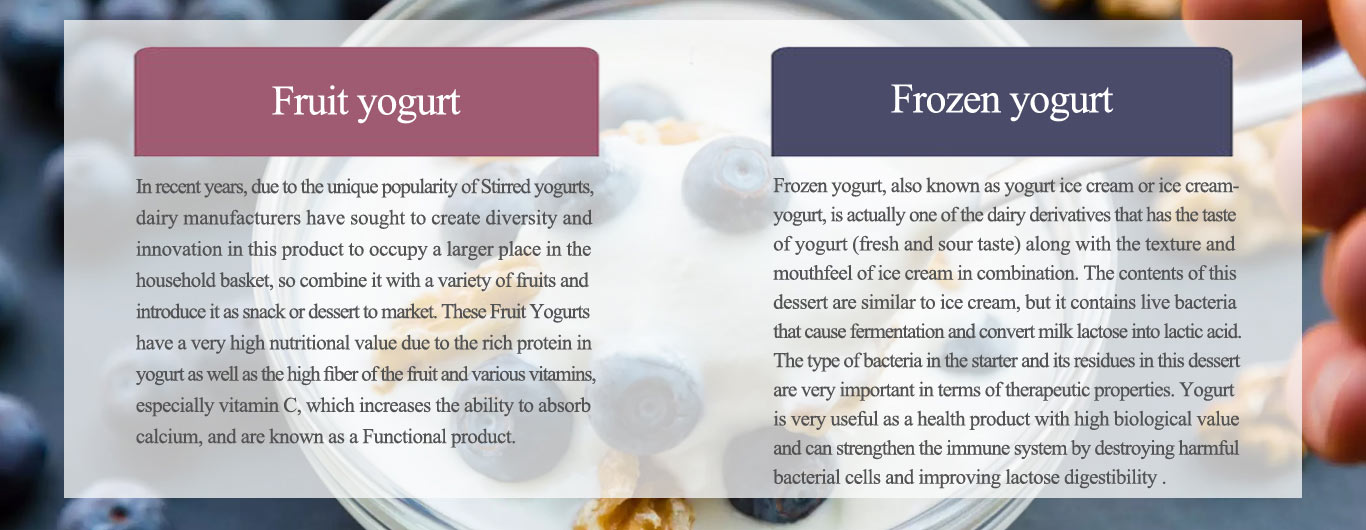Dairy products are one of the most important parts of the food pyramid needed by humans. Fermented dairy products play a vital role in the human diet worldwide. Yogurt is one of the most important fermented dairy products obtained by adding yogurt base or starter (a group of beneficial bacteria including streptococci and lactobacilli) to milk.
During the fermentation process, milk sugar (lactose) is converted to lactic acid and by changing the pH and temperature control in the range of 45 degrees, milk proteins change structure, creating a creamy texture and a fresh taste. Yogurt contains most of the milk nutrients, which is more absorbable than milk. Yogurt is easily digested in the body and has a high nutritional value and is a rich source of carbohydrates, protein, fat, vitamins, calcium and phosphorus.
Yogurt increases the health of the gastrointestinal tract by strengthening the beneficial bacteria in the intestine. The calcium in yogurt also prevents the overgrowth of the lining cells of the large intestine, and the combination of these benefits has led to a variety of yogurt products accounting for a large share of people's food basket. Today, by enriching the microbial flora of yogurt as a snack, it strengthens the intestinal flora and has entered the market under the name of Probiotic products and is included in the category of Functional products.
In addition to yogurt health values and its derivatives, which were briefly discussed, another reason for the tendency of consumers to this dairy product is the special acetaldehyde taste of yogurt, which is due to the activity of the starter consumed in it and distinguishes its taste and aroma from other dairy products. All these matters have led to special attention and many innovations to this dairy product in recent decades. For example a variety of Set & Stirred Yogurts, Vegetable Yogurts, Fruit Yogurts Dessert, Frozen Yogurts and Yogurt Drinks.
• Set Yogurt:
It is the same traditional yogurt available in the market that after the pasteurization heat process (temperature 75ºϲ), the milk is cooled to 45 degrees, then a starter is added to it and it is heated in the same temperature to form yogurt texture. This type of yogurt is also known in the world as Balkan yogurt. The shelf life of yogurt will vary depending on the thermal process applied to it. Pasteurized yogurt has for 14 days shelf life and sterilized yogurt for 4 to 6 months.
• Stirred yogurt
This type of yogurt has entered the Iranian market in recent years and has been widely welcomed by consumers. The production process is similar to Set Yogurt, except that the starter is added in large tanks equipped with temperature control and stirrer, and after the incubation time, the mixture is homogenized with a stirrer and then pasteurized or sterilized and it is finally packed.

